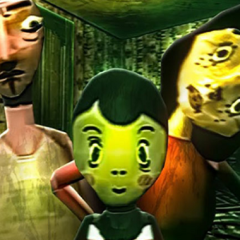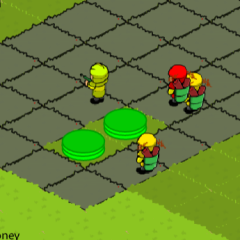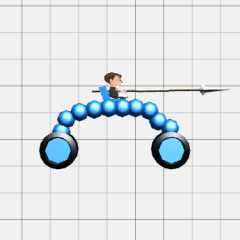Cantata takes place within the empire of Saleste, a society built on hierarchy and obedience. The empire expands through conquest and assimilation, enforcing strict laws over those it governs. Among its many peoples are the Iredicci, known for their connection to the cordis—a kind of inner frequency that allows them to sense harmony and dissonance within all living things. Their ability makes them targets of regulation, their language restricted, their gatherings watched. The player begins as one of them, born into a world that mistrusts what cannot be measured.
The Disguise and the Journey
The story begins with the event called the Proelium, a purge that destroys many Iredicci communities. The protagonist survives but must hide their heritage. To live inside the empire, they pretend to be unable to speak or hear. Over time, the lie becomes a shield. Years pass, and the player must navigate a culture that values silence for obedience but punishes it when chosen freely. The disguise creates distance between who the character is and who they must appear to be. This tension defines every encounter and every decision.
The Mechanics of Choice
Cantata structures its narrative through a series of personal and political decisions that shape how the world responds to you:
· Select gender, name, and social role.
· Decide when to reveal or conceal your true voice.
· Manage relationships with allies, rivals, and family.
· Choose whether to accept or reject imperial values.
· Determine how the cordis influences your perception.
These decisions do not simply branch the story—they change how others interpret your existence. The world reacts less to what you say and more to what you choose not to say.
The Weight of Silence
As the player moves through the empire, silence becomes a tool and a language. Some characters view it as strength; others see it as defiance. The story uses quiet moments to explore thought rather than action. You may find yourself standing among soldiers, merchants, and fugitives, unable to speak yet still influencing events. The power of choice lies not in command but in restraint—what is withheld often carries more meaning than what is said.
The Resolution of the Voice
Cantata ends according to how the player defines truth. Revealing your identity may ignite rebellion or reconciliation. Keeping it hidden may preserve peace but at personal cost. The final scenes reflect not on triumph but on transformation. Whether sound returns or remains suppressed, the story ends with a sense that the world has changed through recognition alone. The empire continues, but its harmony is no longer singular—it carries the echo of your presence, quiet but unforgotten.





























